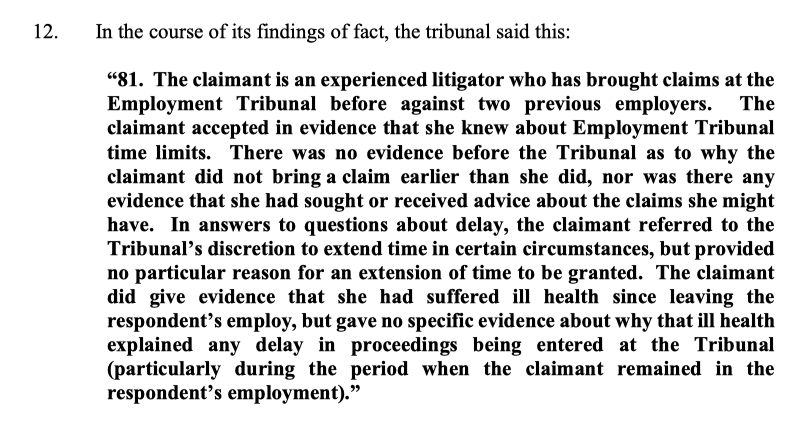
Dundee Uni v Chakraborty: EAT rejects submission that ET shouldn't have ordered disclosure of an earlier version of a grievance report because it would tend to show the nature of legal advice given which led to amendment of the final version.
assets.publishing.service.gov.uk/media/632de9e9…
#ukemplaw
assets.publishing.service.gov.uk/media/632de9e9…
#ukemplaw
2/ A grievance report went through a number of iterations. It was clear from an annotation on the final version it was amended in accordance with legal advice. C's application for disclosure of the earlier version was resisted on privilege grounds, but the ET ordered disclosure.
3/ The EAT upheld the ET decision. The earlier version was clearly not subject to privilege when produced. It couldn't become retrospectively privileged. Moreover, the comparison wouldn't show what advice was given, or which amendments were made under legal advice & which weren't 







• • •
Missing some Tweet in this thread? You can try to
force a refresh










